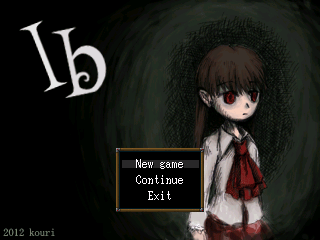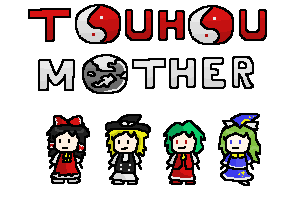
News
2016.12.14
Talking Localization With Vgperson
Vgperson is known for the number of Japanese indie games and their work in localization which made various Japanese indie games accessible to the rest of the world. Starting with the LiEat series, which we have published on Steam and PLAYSIM, vgperson is also the localizer behind other titles such as Mad Father and Alicemare.
We asked vgperson a few questions about their experience in game localization.
As the translator, you experienced these games in Japanese. How did you first encounter the language? Did you pick up Japanese through video games?
While growing up, I always had an interest in Japanese through video games from Japan, though I can’t say for sure how much I ever entertained learning the language back then. However, when there were Japanese classes offered at my high school, I took the opportunity. They ended up only giving me basics, but it motivated me to continue with self-study through browsing Japanese content online, and eventually translation once it occurred to me that was something I could do. Though early on, I was awfully inexperienced and made lots of mistakes.
At one point, I did play through a number of classic RPGs and such in Japanese as practice, which probably counts, but ultimately I learned through many things that I saw/watched/played and translated.
What was the first game you ever translated?
The correct answer is Ib, but the real answer is Touhou Mother. Touhou Mother is a fangame that combines the characters of the Touhou Project with the Mother (Earthbound) series. The videos posted by the game’s creator as he developed the game were popular enough that they usually appeared in the rankings for the Touhou category on the video site NicoNico Douga.

At the time I first found Touhou Mother, I had been doing translations of Vocaloid songs from NicoNico, and I liked the Touhou and Mother series, so I found myself wondering whether this was something I could translate too. I downloaded the game and was surprised to realize how easy it was to edit, so I just got to work. It was an utter mess (an all-kana game with weird referential humor is not a good starting point for an inexperienced Japanese translator) and I ended up retranslating all of it twice or so, and as I recall I’m still not very satisfied with the current translation, but I learned a lot from it.

Anyway, the answer should be Ib. I also found it through NicoNico Douga, specifically someone else’s playthrough. Having handled Touhou Mother, I knew I could do RPG Maker 2000 games, so again I just got to work. (Note that this involved things like manually changing resource filenames to avoid making people change their system locale to Japanese just to run the game; there are a lot of technical bits about RM2K that I’ve “solved” over the years.) The game was already quite popular in Japan, so it’s not too surprising how it spread after my translation. And like many things I translate, people liked it, so I kept looking for more quality free games to bring over.
Many of the games you have translated are original stories created with Smoking Wolf’s RPG editor. What does the JRPG genre have to offer in this day and age? What differences do you find between the way Japanese and Western creators tell their stories?
While basically all of my free game translations are made in “RPG makers,” only a handful can really be considered JRPGs; WOLF RPG Editor and RPG Maker are simply popular tools with freeware creators in Japan, that they use to make all sorts of stories independent of genre. Some creators may incorporate traditional RPG elements offered to them by the engine, though I feel like if a “story-focused” game is going to have elements like fighting, people prefer that they’re implemented into the game well and not “obligatory” or not well thought-out.
Since I don’t feel I’ve translated many “JRPGs,” I don’t feel I can say much in general about their potential. I’m personally interested – both as a player and as a creator – in games as a storytelling medium, with gameplay that enhances the storytelling. Though they certainly exist in the West as well, I feel there are a lot of independent Japanese creators wanting to tell stories through games. They don’t all take full advantage of their medium, but they’re stories worth translating, which is why I do translate them.
I think your translations are quite faithful to the original text. Did you ever need to change something in order to make it easier to understand/relate to for a Western audience?
Absolutely. Translation is all in reproducing the same feel more than connecting lines between specific words. And Japanese and English are such disparate languages that this is how it has to be done. Depending on how you look at it, there are arguably “changes” everywhere, but I usually don’t think about them as such, because I’m just aiming for the same feel.
There are cases where the translation is more evidently not a “direct” match with the Japanese, like wordplay, but I always try to come up with something in a very similar vein there, too. I change cultural references as necessary: they may be perfectly fitting (perhaps with a brief, unobtrusive explanation squeezed in there) if it’s an explicitly Japanese setting, but warrant replacing in other cases. Though, I think a good deal of the audience for my free game translations understands these are games from Japan and may have a familiarity with certain cultural things, so my decisions can depend somewhat on that expectation. But I do want to make things as accessible as they can be.

Of the games you have translated so far, which is your favorite and why?
I have far too many favorites to choose. Ib is a classic for a reason, having a lot of charm, personality, and characterization of its three main characters, all packed into a fairly short game. The Witch’s House takes different (compared to Ib) but very effective approaches to horror in an RPG Maker engine. And 1bitHeart is very stylish, with some interesting conversation gameplay, a lot of great characters, and the friend-making system that allows for charming scenes with all of them. But all of the games are good on some level, or else I wouldn’t have translated them. Probably.

What advice would you give to aspiring game translators?
Being a translator is, in more ways than most think, just like being a writer in your target language. You’re given the words, but those words were merely how the author conveyed what they were trying to convey through the use of their language – now your job is to do that in another language. So I think I should encourage translators not to be swayed by people who insist on a certain approach to translation, often with little to no actual familiarity with how it works. “Accuracy” can be surprisingly nebulous, and shouldn’t be used as an excuse for a stilted or unintelligible translation. I think most any Japanese translator who approaches it with passion and care comes to this kind of conclusion, so let it be known: you can write natural English. It’s fine.
Above all, don’t start by translating Touhou Mother. Fortunately, I already have that covered.
A huge thank you to vgperson for doing this interview with us.
You can find games they have translated here:
LiEat | Mad Father | Alicemare
